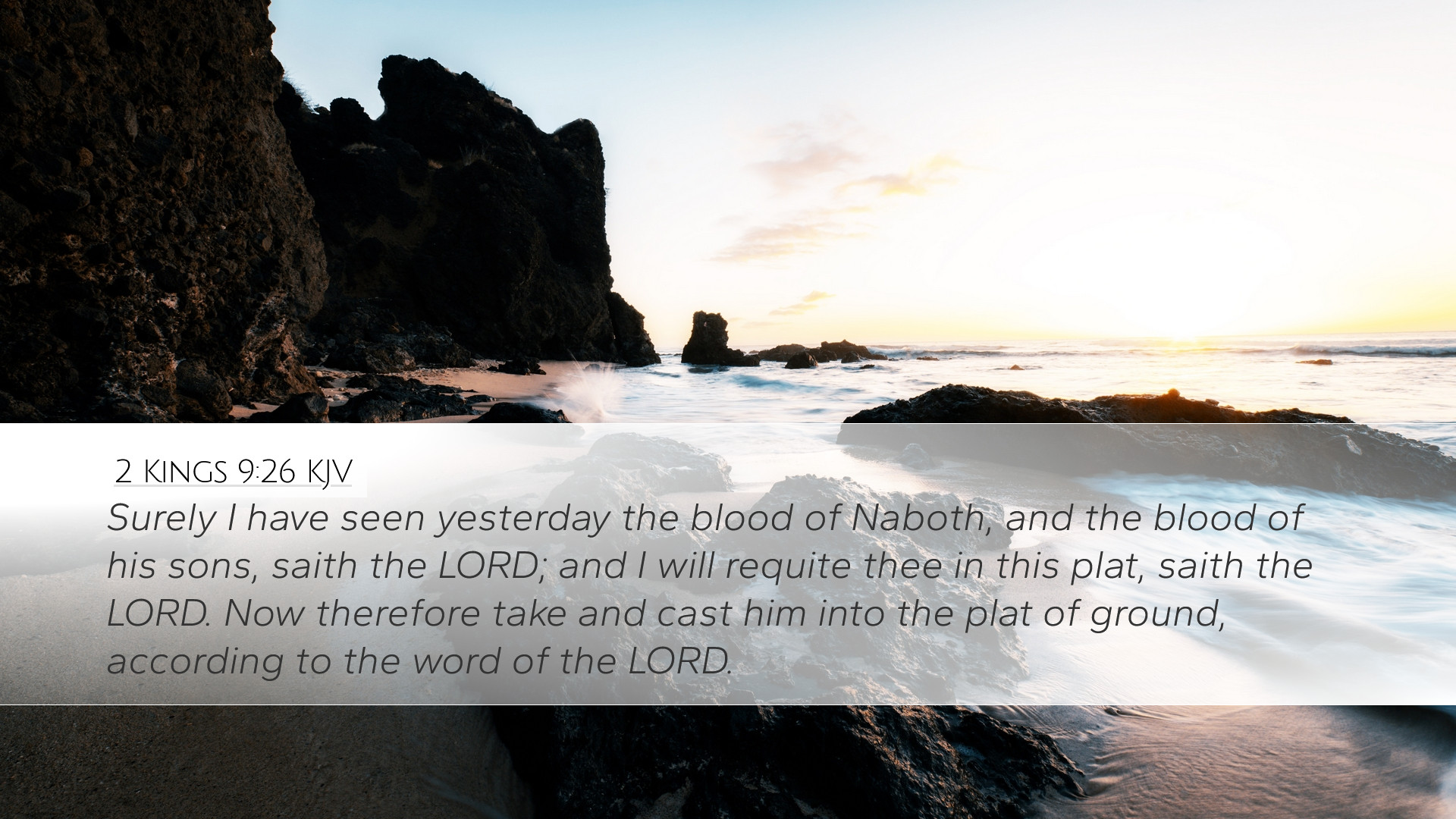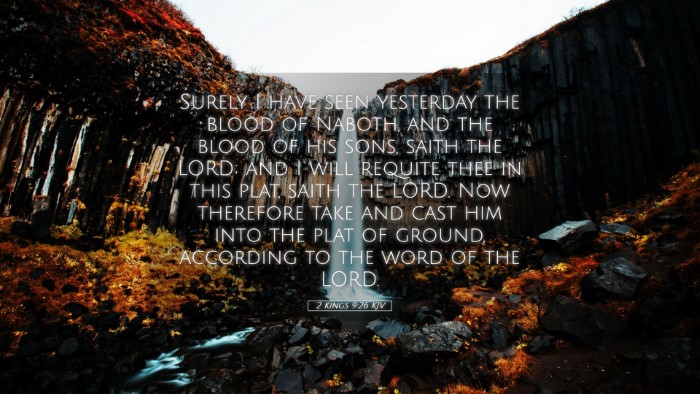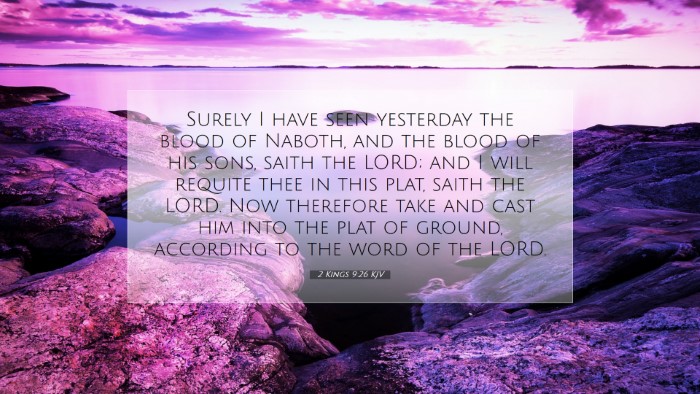Commentary on 2 Kings 9:26
2 Kings 9:26 states, "As surely as I am the LORD and you see me now, I will repay you on this plot of ground, declares the LORD." The verse is part of the narrative concerning the judgment against the house of Ahab, particularly focusing on Jezebel.
Contextual Background
This verse is situated in a pivotal moment during the reign of Jehu, who is anointed king and tasked with eradicating the evil influence and practices introduced into Israel by Ahab and Jezebel. It reflects the seriousness of God's judgment on the corrupt leadership of Israel.
Insights from Public Domain Commentaries
Matthew Henry's Commentary
Matthew Henry emphasizes the certainty of divine retribution, noting that the phrase “As surely as I am the LORD” is a solemn affirmation of God’s unchangeable nature and commitment to justice. Henry remarks that God's judgments are precise and will be executed upon those who have led His people astray.
- Judgment Upon Jezebel: Henry points out that Jezebel's notorious actions, particularly in promoting idol worship and persecuting the prophets, have sealed her fate. Her death becomes a significant example of divine justice.
- Divine Assurance: The emphasis on God's declaration serves as an assurance to both the faithful and the wicked. The faithful are reminded that their suffering under evil rulers is seen by God; the wicked face inevitable consequences for their transgressions.
Albert Barnes' Notes on the Bible
Albert Barnes focuses on the depiction of God as the righteous judge who does not forget the sins committed against Him. Barnes notes that both the language and the context serve to underscore the irrevocable nature of God's decree against Ahab’s lineage.
- Historical Context: Barnes highlights that this moment is prophetic. The events foretold here serve to remind the Israelites of the divine standards that govern their nation and leadership.
- God's Timing: He points out that God's justice unfolds in His perfect timing, often contrary to human expectations. The temporality of God’s judgment does not dilute its certainty.
Adam Clarke's Commentary
Adam Clarke provides an in-depth analysis of the spiritual implications of this verse. He explores the broader theological theme of divine sovereignty in judgment and retribution.
- Symbolism of the Ground: Clarke interprets the "plot of ground" as symbolizing not just a physical location but representing spiritual and moral ground that Jezebel has eroded with her actions.
- Replication of God's Judgment: He draws parallels between Jezebel’s demise and the fate of all who stand against God's people, noting that God’s judgment extends to all nations and their leaders.
Theological Implications
The verse serves as a stark reminder for contemporary readers about the seriousness of sin and the assurance of God’s justice. It illustrates that no matter how entrenched evil may appear, God’s retribution is inevitable.
- Imminent Justice: The promise of repayment emphasizes that God’s justice is not only certain but also imminent. This impacts how believers live and act in a world often characterized by injustice.
- Call to Accountability: Leaders and individuals alike must hold themselves accountable to God’s standards, aware that their influence shapes the moral landscape profoundly.
- Hope for the Oppressed: For the oppressed and faithful, this verse serves as a beacon of hope, confirming that God sees all wrongdoings and will not let them go unaddressed.
Conclusion
2 Kings 9:26 encapsulates powerful sentiments regarding divine justice and retribution. For pastors, students, theologians, and biblical scholars, it reveals multifaceted dimensions of God’s character, underscoring His sovereignty and faithfulness. The emphatic assurance of God’s repayment invites deep reflection on personal and communal faithfulness amidst prevalent societal evils.


